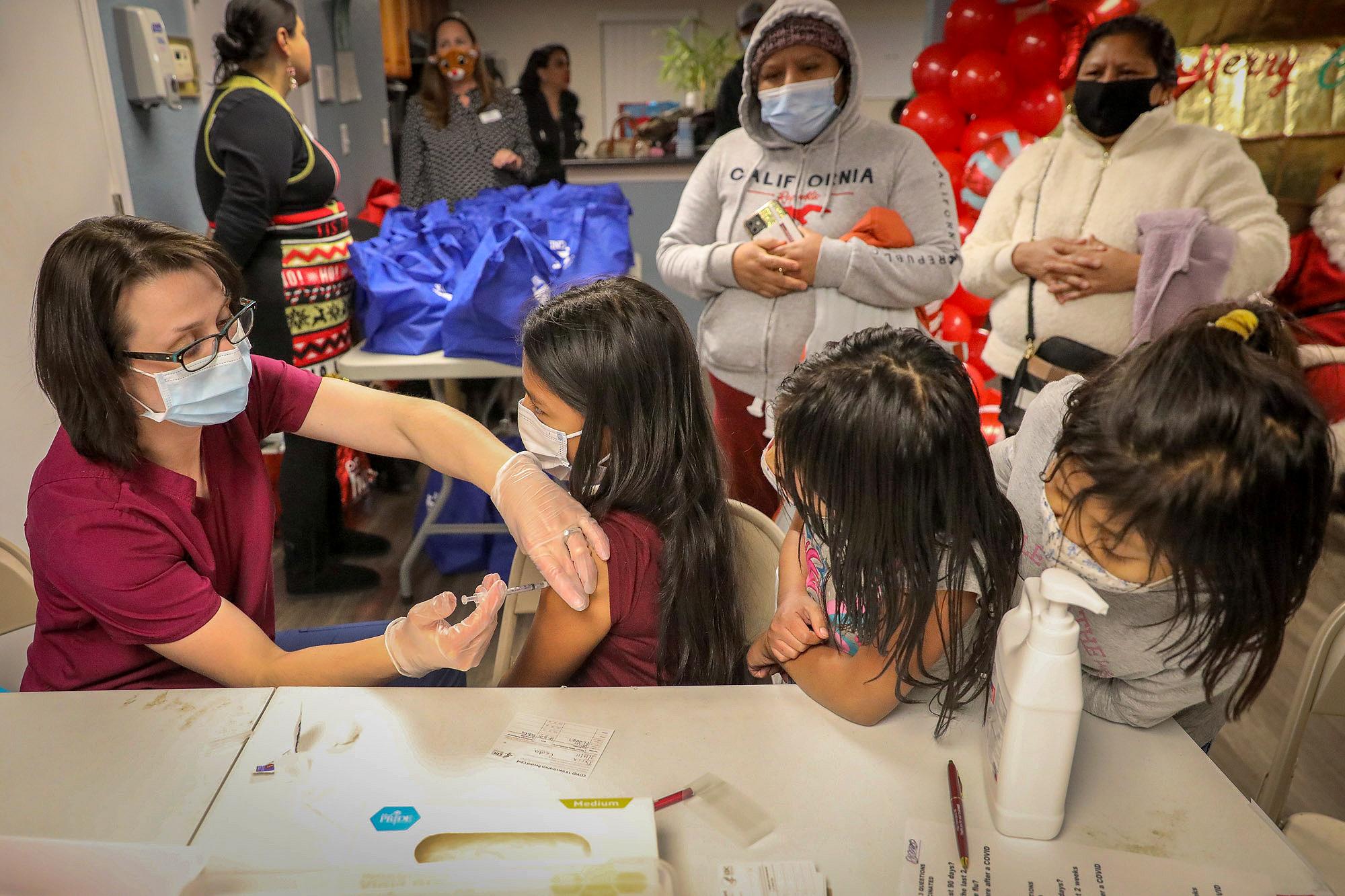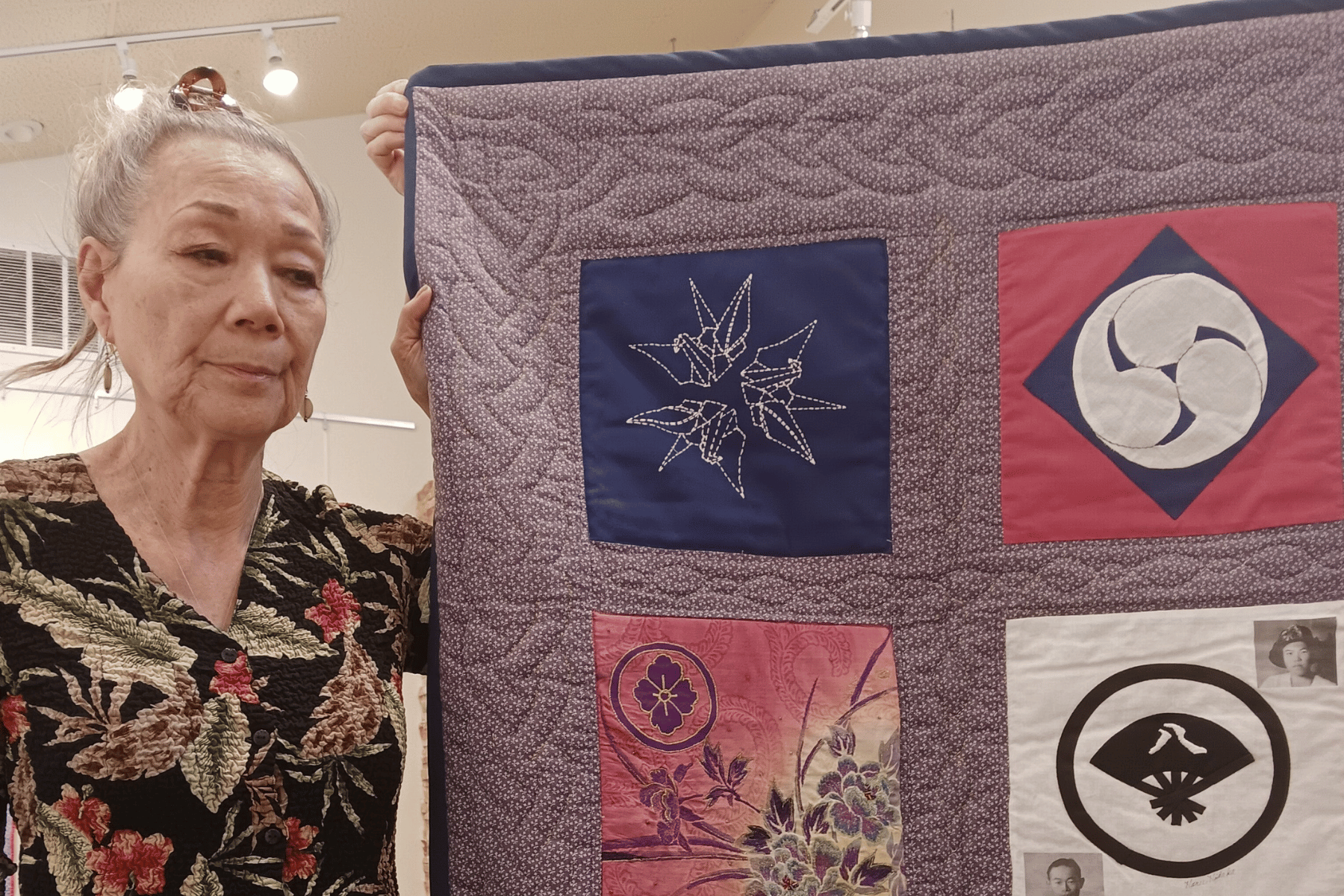
In early November, I started feeling sick. I felt tired and had a really bad cough and sore throat. I thought it was COVID-19.
I live with people who are over 75 years old, so I was worried about exposing them.
We’re all vaccinated. In fact, I had just gotten my booster shot and flu shot a few days before getting sick. I decided to get tested at a local urgent care. The test came back negative. A relief, but still, I felt more sick than when I had strep throat a few years ago. I lost my voice, a big problem for a radio reporter as you can imagine.
I still felt sick almost two weeks later
My symptoms were so bad that I got tested for COVID-19 again — and tacked on a throat culture to test for strep. The urgent care doctor prescribed antibiotics and rest. I felt better a few days later.
I wasn’t the only one at work or among my friends to experience this kind of lingering cold and COVID-19 anxiety. So I reached out to Dr. Michelle Barron, an infectious disease expert at the CU School of Medicine on the Anschutz Medical Campus, who’s helped guide Colorado through the pandemic.
So how can you tell the difference between COVID-19, a cold or the flu?
You can’t, unless you get tested.
“At the beginning, a lot of the early symptoms can overlap very frequently,” Barron said. “So runny nose, sore throat, headache, that could be a cold, or it could be COVID-19, or could even be early signs of the flu for that matter.”
Unlike last year, the flu is circulating widely in Colorado this year, and so are a lot of other common colds.
What do I do if I have any of those symptoms?
The next step is to get tested, Barron said. Whether you think it’s COVID-19 or not, a test will help you make the best decision about next steps. There’s a test that will look for COVID-19, the flu and respiratory syncytial virus, or RSV, which is also circulating right now.
Why do you need to know what you have?
Well, Barron said it could help you and your doctors to make decisions on treatment and also helps the state better track transmission of COVID-19.
“Obviously COVID impacts you and others around you because of potential infectivity, but so does the flu and so does RSV, actually, those things can all be transmissible to others and make other people really sick,” she said. “Flu has treatment. So does COVID and we could give you monoclonal antibodies if you were in the right risk groups.”
Regardless of what you have, Barron said stay home from work and away from gatherings if you can, and make sure to wear a mask if you do go anywhere or see anyone, and preferably an N-95 or KN-95 mask.
The state is offering free rapid-tests that will be delivered to your house. Tests are also available at Urgent Cares, your doctor's office or local hospital, as well as state-run testing sites.
What’s the deal with this new omicron variant?
Omicron was first detected in South Africa and has already made its way to dozens of countries. It’s spreading faster than the delta variant and has health officials worried, especially during the holidays.
“We're worried. There's no question. We're very concerned about it. I think this is delta but on steroids, in terms of how much even more contagious it is,” Barron said. “Combined with the fact that we are in the middle of the holiday season, people are traveling, people are gathering and everybody's over the whole concept of, you know, like that it exists. I anticipate we'll see a big surge in cases probably mid-January.”
Getting vaccinated, or boosted, avoiding crowds where the vaccination status is unknown, wearing masks indoors and avoiding seeing other people if you have symptoms is still the best way to avoid contracting COVID-19.
Hospitals have been hovering near capacity for weeks as cases increased around Thanksgiving and then dropped off again. The fear for health officials is that the post-holiday peak will fill up hospitals and exceed capacity.
“Some people can get very mild symptoms, but some people can get really sick and no one wants to end up in the hospital. We certainly will take care of you and make sure you do OK,” Barron said. “It's really been very taxing. These last two years have I think really taken a toll on health care workers. Just trying to just keep up with the grind because we haven't really had a real reprieve from either COVID or just other things that require you to be in the hospital.”
How important is it to get a booster? And do I need to wait if I’ve been sick?
If you were vaccinated with either Pfizer or Moderna six months or more ago or had the Johnson & Johnson shot two or more months ago, then it’s time to get your booster dose. The CDC recommends getting either Pfizer or Moderna and has found that so-called mixing and matching is safe.
A little less than half of Coloradans who’ve been vaccinated have received their booster dose. Barron and other health officials say that number should be higher.
“Getting vaccinated is a big deal. Obviously, it's a good idea to have that completed at least two weeks prior to your travel plan,” Barron said. “What if you're leaving in a week? It's still worth getting it done and doing it before you actually leave, so you have some level of protection.”
Booster shots are available at state-run vaccination sites, most pharmacies and hospitals. They’re also available at Denver International Airport by appointment.
Boosters haven't yet been available long enough for complete studies, but doctors generally recommend that individuals who get breakthrough infections wait four weeks after testing negative before getting the booster dose.
How can I see my family and friends safely for the holidays?
Gathering with friends and family on Christmas will depend on each person’s risk assessment. If everyone is vaccinated and boosted, that’s a good scenario, said Barron. She also recommends being careful with elderly loved ones.
“If there's somebody particularly complex either because their medical conditions or their age that you're worried about, treat them that way,” Barron said. “Where you can still see them. You can still talk to them, you can give them a quick hug, but maybe you limit the close interactions with them. So there's droplets coming out, they're not gonna land on your loved one.”
Barron said there are several things to keep in mind during gatherings:
- Make sure there's good ventilation and air flow, either indoors or outdoors
- Take a rapid COVID-19 test just to be sure
- If you're not feeling well, skip the party
- And If you travel by plane, train or some other form of group travel and come down with something, be prepared to quarantine in that place for at least 10 days.









